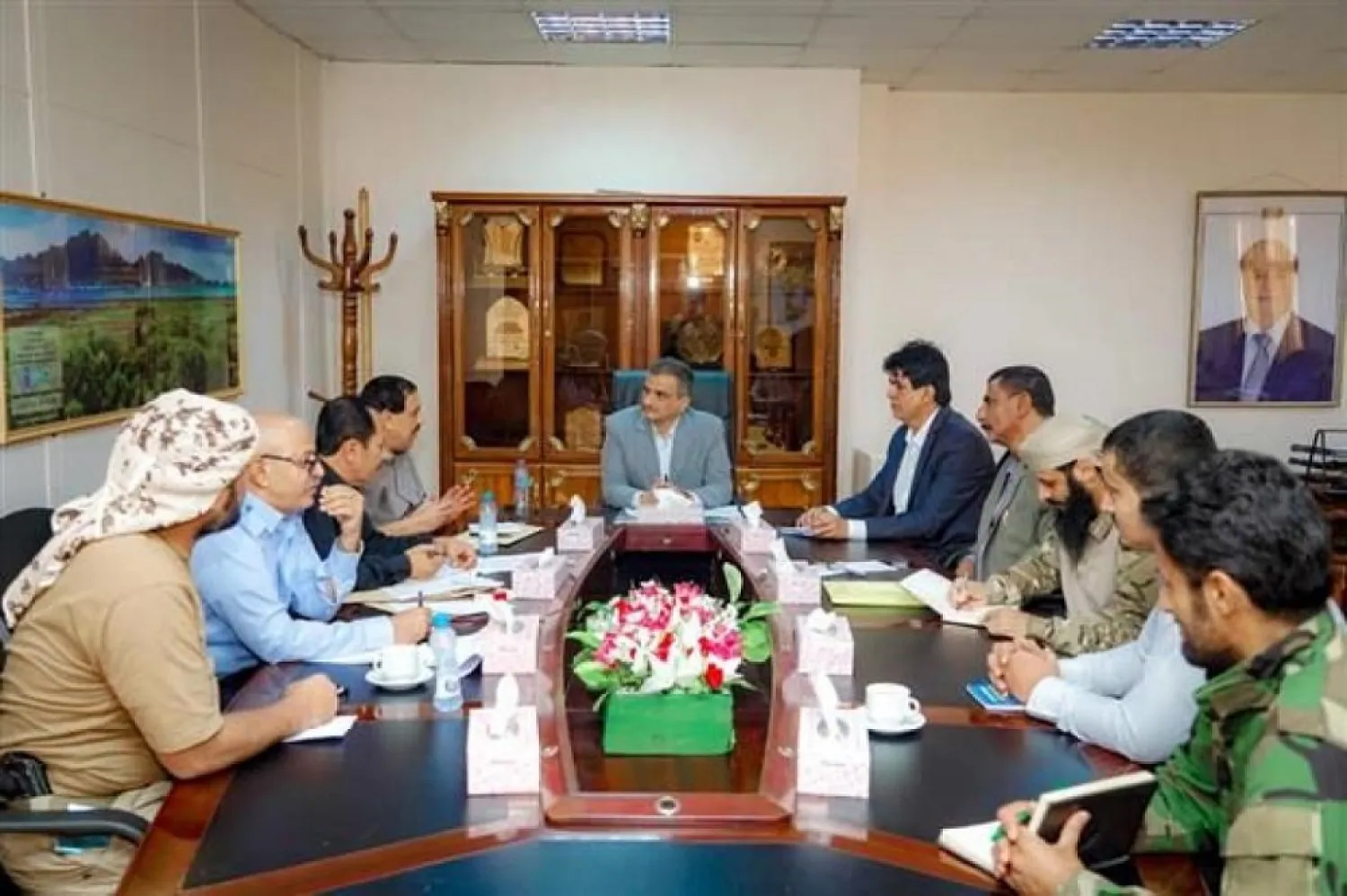The supreme security committee in Yemen's interim capital Aden held on Sunday an emergency meeting and decided to take measures to confront possible acts of terror and sabotage.
At the meeting, chaired by Aden Governor Ahmed Lamlas, security measures were passed that include establishing an operations room and integrated electronic surveillance network in all districts and committing stores to install security camera systems.
They come amid increasing threats since the new government arrived in the city some two weeks ago. Upon its arrival at Aden International Airport, the war-torn country’s newly formed government was targeted by deadly blasts, but none of the ministers was harmed.
The government accused the Iran-backed Houthi militias of carrying out the attack, which received widespread local and international condemnation.
Sunday’s meeting approved more measures including restrictions on the movement of security patrols, including preventing the deployment of security patrols to parks and prohibiting non-state patrols.
Lamlas urged boosting the security to face acts of sabotage aimed at obstructing the return of foreign diplomatic missions and targeting international organizations.
“It is imperative to stand seriously in front of these acts, tracking down perpetrators, apprehending them and holding them accountable,” he stressed.
The governor also wished newly-appointed Aden police chief Maj. Gen. Mutahar Al-Shuaibi success in fulfilling his duties, and reaffirmed the local authority's full support for the entire security apparatus.
Highlighting the need for security units and police stations to assume their responsibilities, Lamlas called for activating the roles of investigation departments intelligence services in general.
He made a point that the “Aden security apparatus is not to blame for the cowardly terrorist attack that targeted the new government.”
The security committee approved a number of measures to enhance the security situation in the directorates of the interim capital.
It decided on limiting the movement of military personnel and vehicles outside official security tasks, and preventing their presence in parks and public venues.









